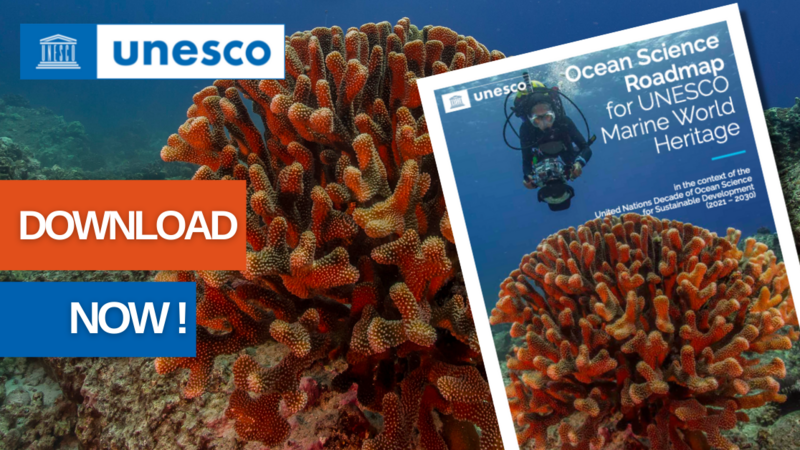A new report, Ocean Science Roadmap for UNESCO Marine World Heritage, reveals that three quarters of marine World Heritage sites are unprepared for the impacts of climate change, because of a lack of scientific knowledge. The roadmap identifies critical science gaps that impede the sustainable protection of marine World Heritage sites in an uncertain future and calls for vastly increased investment through the United Nations Ocean Decade.
The roadmap, which was launched on 17 November 2021 at a high-level event during the 41th session of UNESCO’s General Conference, highlights key gaps in research capacity and infrastructure, explores the technology and capacity required for science-based decision making and the sustainable finance and resources needed to support the necessary research. It outlines what information sites need in order to assess climate vulnerability and use targeted science to underpin conservation and management efforts.
The roadmap is the result of a UNESCO-led science assessment survey on the current status of ocean science and knowledge at marine World Heritage sites among local management teams - including the Trilateral Wadden Sea Cooperation's member organisations, and a one-day conference with over 100 leading scientists, managers and philanthropists to investigate gaps and priorities.
The Ocean Science Roadmap for UNESCO marine World Heritage is a joint collaboration between UNESCO’s Intergovernmental Oceanographic Commission and the Culture Sector’s World Heritage Marine Programme. It was developed in the context of the United Nations Decade of Ocean Science for Sustainable Development (2021-2030). The Trilateral Wadden Sea Cooperation is active member of the Marine Programme and participated in the survey at the basis of the roadmap.

